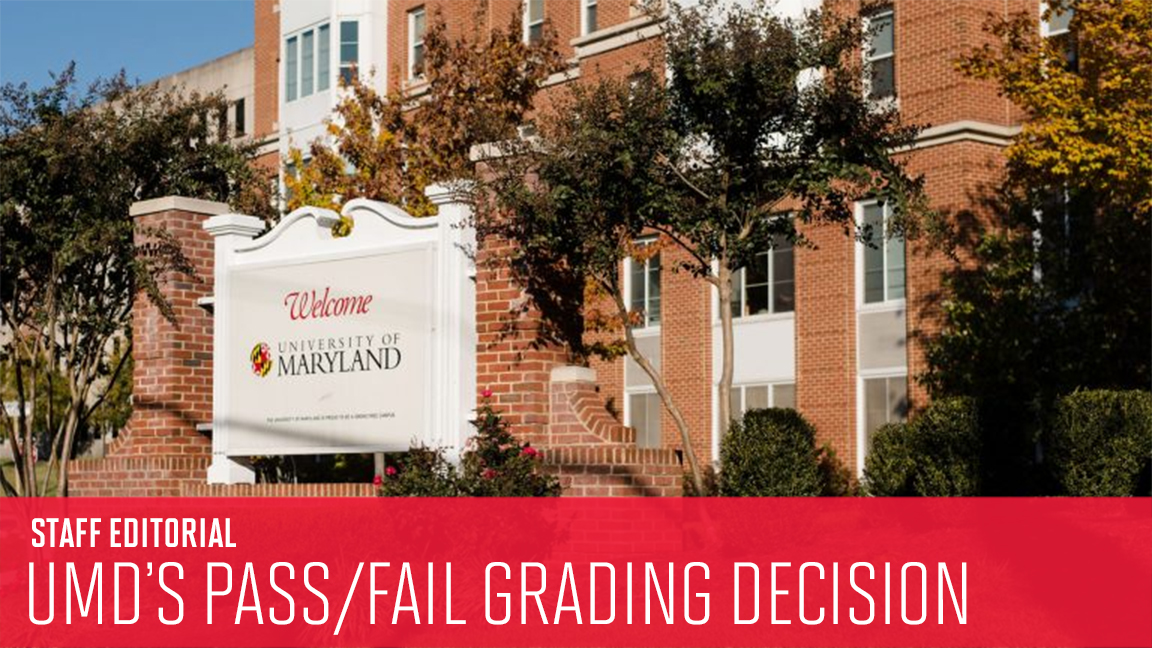Though it’s been eight months since the onset of the coronavirus pandemic in the United States, not much has improved. All classes are moving online again. There have been at least 1,200 COVID-19 cases in the University of Maryland community. The pandemic’s effects are still felt by students: financial instability, lack of child care, unstable internet, the ever-present fear that they or someone they love will contract the virus and die.
Students are grasping at straws to gain some semblance of control over their education. Yet when presented with the chance to give students some agency about their grading method, the university refused.
Earlier this week, Provost Mary Ann Rankin announced that — instead of implementing a pass/fail grading policy like last semester, something thousands of students have asked for — the university is extending the deadline to withdraw from a class by three weeks.
The extension is not an equal trade for a pass/fail system, and this measure mostly ignores students’ needs while prioritizing profit — something this university’s administration has done time and time again.
Students who anticipate doing poorly in a course now have more time to decide to withdraw so it doesn’t affect their GPA. However, taking a “W” means they will have paid for a class without receiving any credit for the work they did for most of a semester. In a pass/fail system like last semester’s, students with low but passing grades would have the option to earn a “P” on their transcripts instead, leaving both their GPAs and their hard-earned credit intact.
In her announcement, Rankin argued that a pass/fail system would hurt those who want to apply to graduate school or other post-graduate accreditation programs. This makes no sense. First, the pass/fail grading system would be optional. If students want a letter grade — for any reason, graduate school included — they can take a letter grade.
But also, universities across the nation, including those as prestigious as the University of Virginia, are amending their grading systems amid the pandemic; thus, graduate and accreditation programs will be viewing thousands of transcripts with grading methods altered by COVID-19. This university’s students would likely not look any less competitive with a pass/fail system.
Rankin also asserted “it is in the best long-term interest of our students” not to implement the spring grading system again. But students have repeatedly shown they have thought through the implications of a pass/fail system. More than 7,500 people have signed a petition asking for the system, and both the Residence Hall Association and the Student Government Association unanimously passed resolutions asking for the system.
University officials are fine — happy, even — asking students to make life-altering decisions about whether to take on thousands of dollars in student loan debt or whether to come to the campus amid a pandemic. Yet when it comes to a decision about grading, they are patronizingly sure they know best.
They don’t.



